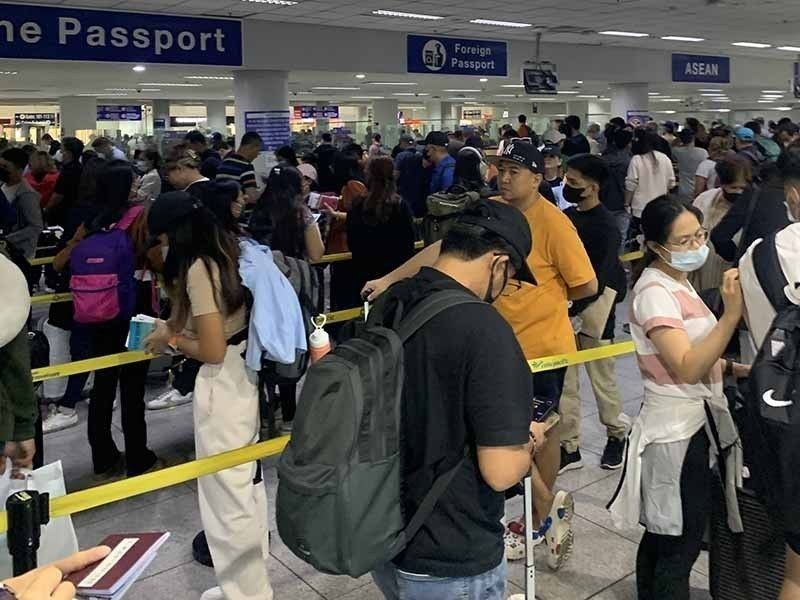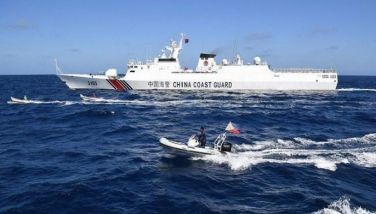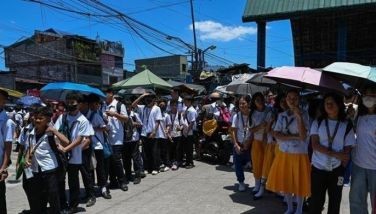Anti-trafficking council approves revised departure rules for Filipino travelers

MANILA, Philippines — The Inter-Agency Council Against Trafficking said it will implement revised departure protocols for Filipinos traveling abroad starting September 3 in a bid to combat “the grave menace of human trafficking.”
IACAT, which is composed of various government agencies and non-government sectoral representatives, approved the revised guidelines on departure formalities for Filipinos traveling overseas and published the protocols this month.
The move comes after a series of complaints from travelers who have reported missing their flights or being offloaded due to questioning by Bureau of Immigration officers.
IACAT noted that the profile of human trafficking victims is increasingly characterized by “individuals assuming the guise of tourists, ostensibly possessing the means to embark on international travel.”
“It is of paramount importance to emphasize that the Revised Guidelines have been formulated not to encroach upon the fundamental right to travel, but to serve as a protective bulwark shielding our fellow citizens from the dire perils of human trafficking,” the council said.
Travel documents
The revised guidelines listed the following as basic travel documents:
- Passport valid at least six months from the date of departure
- Boarding pass
- Appropriate visa, whenever required
- Confirmed return or roundtrip ticket
In addition to the standard travel requirements, the immigration officer may ask self-funded travelers to show additional supporting documents such as proof of accommodation, financial capacity or source of income, and proof of employment.
Travelers whose trips are sponsored by a relative within the first civil degree may need to present an original birth or marriage certificate or report of marriage issued by the Philippine Statistics Authority, copies of the sponsor’s passport and valid work visa or residence permit, and Overseas Employment Certificate (for OFW sponsors).
If the sponsor falls within the fourth civil degree of consanguinity or affinity, a notarized original affidavit of support and guarantee and original birth or marriage certificate or report of marriage showing the relationship between the passenger and the sponsor must be presented.
In cases where the travel is sponsored by a non-relative or a legal or juridical entity, an outbound traveler should provide a notarized original affidavit of support and guarantee and a document establishing the relationship between the passenger and the sponsor.
Meanwhile, OFWs departing for the first time should show OEC, or OFW clearance issued by the Department of Migrant Workers, valid employment visa or work permit, employment contract, and visa usage undertaking or manpower request.
Inspection
During the primary inspection, an immigration officer will inquire about the purpose of travel, and review basic travel documents. The IO may ask clarificatory questions and require the passenger additional supporting documents.
The primary IO will defer the departure of a passenger if he or she presents fraudulent, falsified or tampered travel or supporting documents, or refuses to undergo primary inspection.
The IO will refer the following passengers for secondary inspection:
- Those who failed to establish their purpose of travel during primary inspection
- Those with inconsistent or insufficient travel or supporting documents
- Those unable to show proof of financial capacity to travel and are accompanied by a foreign national who is not a relative by consanguinity or affinity up to the fourth civil degree
- Those traveling, with or without a visa, to countries under Alert Level 3 or 4 and those with relevant deployment bans
- Those who previously stayed abroad for over six months as a tourist or previously misrepresented any travel information, and are intending to travel again for the same purpose
- Those with active deferred-departure records
- Those identified and reported by the IACAT Anti-Trafficking Task Force or other government agencies as a potentially trafficked or illegally recruited person or a suspected trafficker or illegal recruiter
“During the inspection, the secondary IO shall consider the totality of the circumstances of the passenger which includes, but is not limited to, the purpose of travel, country/ies of destination, duration of stay, travel history, age, financial capacity or source of income consistent with the passenger’s declared purpose of travel, and educational background,” the revised guidelines read.
The secondary IO will defer the departure of the passenger upon a finding of any of the following grounds:
- Refusal to undergo secondary inspection
- Doubtful purpose of travel
- Inconsistent or insufficient travel or supporting documents
- Misrepresentation or withholding of material information about the travel
- Presentation of fraudulent, falsified, or tampered travel or supporting documents
- Non-compliance with previous deferred-departure requirements
- Passenger is a potentially trafficked or illegally recruited person, or a suspected trafficker or illegal recruiter.
- Latest
- Trending































